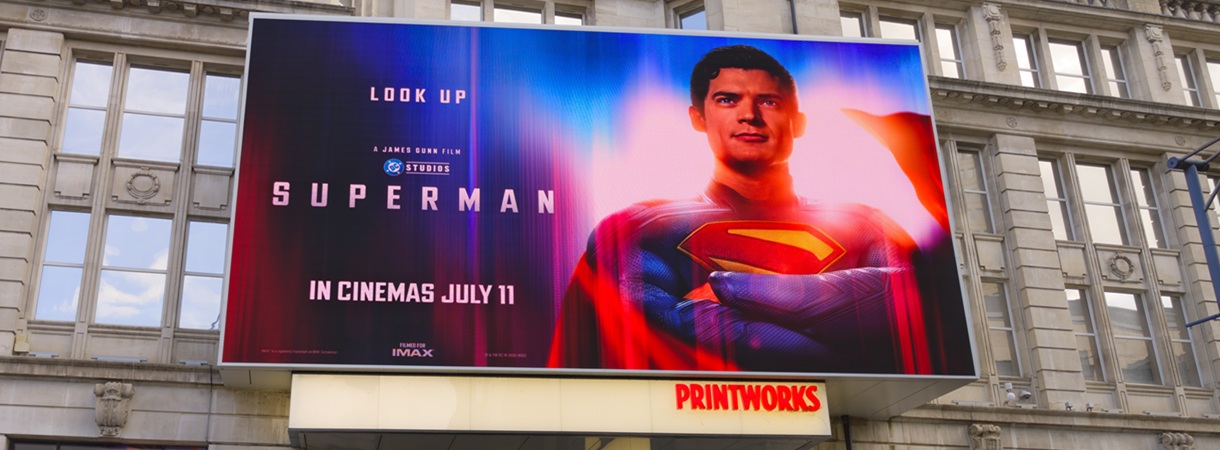About 15 minutes into the new Superman movie, Lois Lane is interviewing the titular character. She asks why Superman is stepping into a foreign conflict, why risk it all? He doesn’t flinch. He says: “I was sent here by my parents.”
Not with shame. Not with uncertainty. With fire. He says it like someone who knows the weight of what he carries—and still believes in it. Not to save the world. But to do good.
I felt that in my chest.
Because that kind of clarity? That kind of purpose? That comes from being sent away in desperation and being told—without saying it out loud—to turn that pain into something useful. Superman didn’t just cross a border. He was launched off a dying planet. He’s not just an immigrant. He’s a refugee. And he carries all the grief, guilt, and quiet hope that comes with that title.
Throughout the film, Superman is feared. Picked apart. Treated like a threat. Lex Luthor goes on podcasts and talk shows, spinning paranoia, turning public opinion against him, and feeding a wave of public distrust. It doesn’t matter what Superman has actually done—the fact that he’s not from here is enough to make people panic.
Sounds familiar?
We’re told the United States is in crisis. By the media, by the president, by our neighbors. We are told that there are reasons to be afraid. That “something” is happening. The words change, but the implication is always the same: immigrants don’t belong.
But that narrative doesn’t match what people actually believe. Pew and Gallup data show that a record number of Americans now say immigration is a good thing—nearly 80%. Only 30% want it reduced, down from over 55% a year ago. Still, the dominant rhetoric doesn’t reflect that shift. The fear gets more airtime. The cruelty gets normalized. The truth is quieter, but it’s still there. And it’s showing up in surprising places—including movie theaters.
“Superman” isn’t just another reboot. It’s a refugee story. One that starts with hard work, motivation, and trust. The movie is also about being questioned, distrusted, and dissected by the very world you’re trying to protect. It’s about surviving the trauma of exile and choosing care over retaliation. It’s also about living above the expectations that others place over you.
It hit something in me. Like many immigrants, I carry a pressure that lives in my bones—the pressure to prove the sacrifice was worth it. To be exceptional, but not too visible. To survive and somehow still be grateful.
When Texas repealed in-state tuition for undocumented students, I felt something crack. I still don’t have the right words for what it meant to watch the door that changed my life slam shut behind me. I think of the undocumented students back home—doing the most with even less. No aid. No protections. No guarantees. And still, they’re expected to rise, to give, to be good.
Just like Superman, these students carry hope and burden in equal measure. They are no less powerful. Yet just like Superman, people still treat them like a threat. That kind of conditional belonging—that ache—is what feels the most real.
And now, with deportations rising again, with raids no longer whispered but filmed and shared, it feels like the monster that used to live under my bed is back— just out in the open this time, prowling our neighborhoods.
While grappling with all my feelings, trying not to cry into my popcorn, I watched Superman pause in the middle of global chaos to save a squirrel. No spotlight, just instinctive care. And I thought: this is what love looks like. Done with conviction, steady, and unapologetic.
That scene reminded me of the people I know, as well as many I don’t. The student organizing school walkouts to support their classmates. The auntie running mutual aid. The tired single mom babysitting someone else’s kid. The ones who keep showing up when it would be easier to shut down. The ones who know they may never be celebrated for their care, but do it anyway.
We’re told many stories about who we are and who we’re not. But the ones I believe in are quieter. They live with people who move toward each other in crisis. Who don’t turn away. Who don’t need capes or cameras to show up.
The stories we tell matter. They shape the policies that follow. Because legislation is never neutral—it’s a narrative with legal repercussions. And the more we center stories rooted in compassion, care, and collective good, the harder it becomes to justify cruelty. I believe in policy. I believe in the data. But I also believe in symbols. And right now, watching people show up to theaters and embrace a story about a refugee who chooses to protect a world that fears him? That feels like something.
Just like Superman, we don’t need to save the world to prove our worth.
 The American Immigration Council is a non-profit, non-partisan organization.
The American Immigration Council is a non-profit, non-partisan organization. 